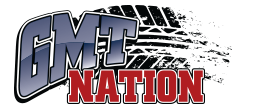Could your loved ones access your on-line banking, brokerage, airline mile accounts, credit cards, insurance, forums and so forth in case YOU got hit by a stray meteorite? Are you the executor for somebody's estate, named as a co-signer, or joint owner of anything? Could they manage the cable internet account, Netflix, health insurance claims in process, and so forth? Do they know all the addresses in your email contact list are not all friends who SHOULD be notified in case of your incapacitation, but you have a few enemies in there who should NOT be notified?
We were discussing this at work the other day, and a solution many of us are using is to archive data in a KeePass data base, share the password with trusted friends/spouse, and then put the data base in a public shared Dropbox folder. I believe it's secure, and I'm pretty paranoid.
There are pay services that will shut down your on-line presence such as Facebook, but when you are involved in more complex things, you might want to consider this approach.
The sorts of records I keep in KeePass are in the following list. I also keep things like the security questions that might appear in a login challenge, in case it's something that my wife or daughter might not remember easily. It's also come in VERY handy a few times when my wife forgets a password and asks me. So store the data on HER technology as well.
Wifi administration: network names and passwords. Admin passwords. Home and work.
Forums, especially if you're a mod or admin.
Email, work and home
Contact list of folks to notify
Contact list of folks to NOT notify
Lawyers, accountants
Mortuary in case you have a pre-planned process they should follow
Banking, mortgage, personal, business
Travel web sites
Airline, hotel, and car rental accounts
Frequent flyer accounts (note: DO NOT NOTIFY ANY OF THEM OF YOUR DEATH. Delta now zeros out your account balance.)
Passport numbers and data
Hosting and domain registration accounts
Brokerages
Dropbox and cloud accounts and passwords
On-line media accounts, music, movies
Backup account passwords and location
Cell phones
Social media - LinkedIn, FB, Twitter, etc.
Skype
Security keypads - home and work
All other on-line stores
Computer, tablet, cell phone passwords and OS and App serial numbers
Credit card account numbers and how to notify them of loss or fraudulent use
Medical accounts of all sorts
All FTP and VPN accounts you have
Insurance: home, auto, trailers, riders, earthquake
Appliance model numbers and warranty end dates
Data on relatives you may be handling any affairs for
Government numbers - SSN and others
Other warranty data you might have - extended warranty accounts, contact numbers, dates
App data for downloaded apps - accounts, password
Subscriptions - on-line, print media
Additional categories and uses for it solicited.
We were discussing this at work the other day, and a solution many of us are using is to archive data in a KeePass data base, share the password with trusted friends/spouse, and then put the data base in a public shared Dropbox folder. I believe it's secure, and I'm pretty paranoid.
There are pay services that will shut down your on-line presence such as Facebook, but when you are involved in more complex things, you might want to consider this approach.
The sorts of records I keep in KeePass are in the following list. I also keep things like the security questions that might appear in a login challenge, in case it's something that my wife or daughter might not remember easily. It's also come in VERY handy a few times when my wife forgets a password and asks me. So store the data on HER technology as well.
Wifi administration: network names and passwords. Admin passwords. Home and work.
Forums, especially if you're a mod or admin.
Email, work and home
Contact list of folks to notify
Contact list of folks to NOT notify
Lawyers, accountants
Mortuary in case you have a pre-planned process they should follow
Banking, mortgage, personal, business
Travel web sites
Airline, hotel, and car rental accounts
Frequent flyer accounts (note: DO NOT NOTIFY ANY OF THEM OF YOUR DEATH. Delta now zeros out your account balance.)
Passport numbers and data
Hosting and domain registration accounts
Brokerages
Dropbox and cloud accounts and passwords
On-line media accounts, music, movies
Backup account passwords and location
Cell phones
Social media - LinkedIn, FB, Twitter, etc.
Skype
Security keypads - home and work
All other on-line stores
Computer, tablet, cell phone passwords and OS and App serial numbers
Credit card account numbers and how to notify them of loss or fraudulent use
Medical accounts of all sorts
All FTP and VPN accounts you have
Insurance: home, auto, trailers, riders, earthquake
Appliance model numbers and warranty end dates
Data on relatives you may be handling any affairs for
Government numbers - SSN and others
Other warranty data you might have - extended warranty accounts, contact numbers, dates
App data for downloaded apps - accounts, password
Subscriptions - on-line, print media
Additional categories and uses for it solicited.
